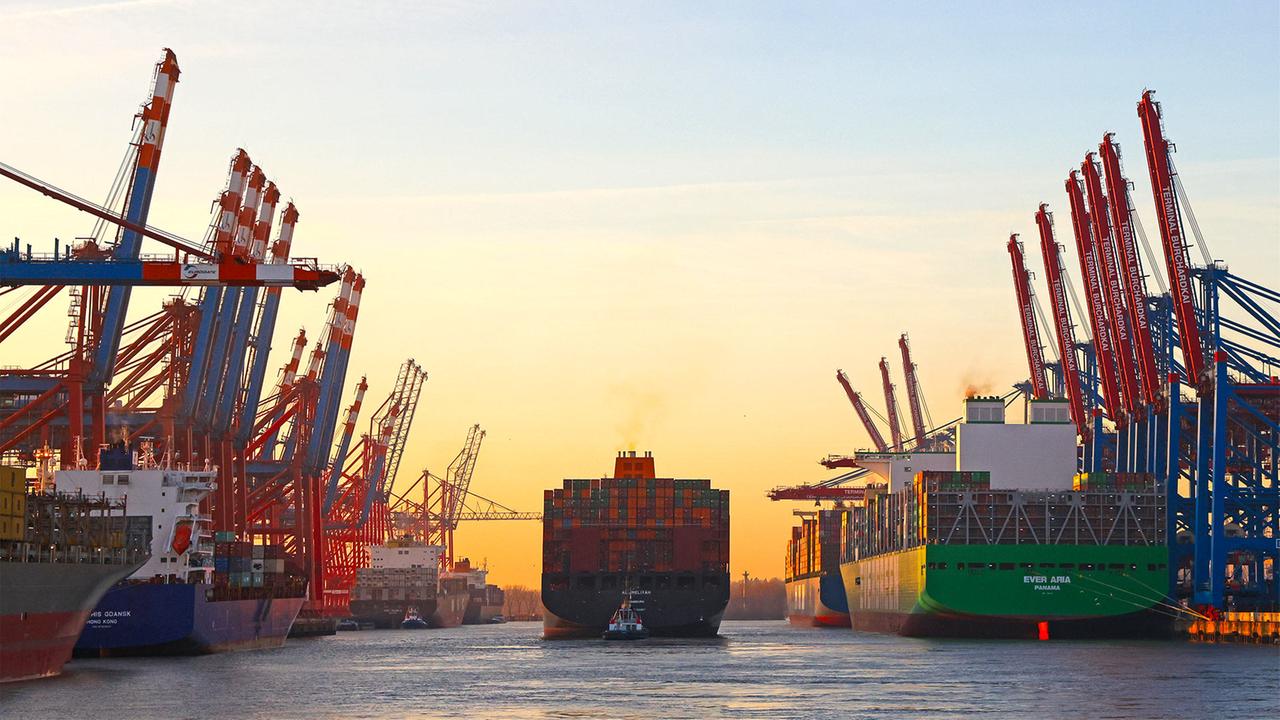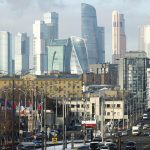Several economic research institutes have lowered their forecasts for German economic growth in the current year. However, private consumption is picking up again and could lead to a recovery.
According to estimates by several economic research institutes, economic performance in Germany is set to decline in the current year. For example, the Kiel Institute for the World Economy (IfW) expects a minus of 0.3 percent compared to the previous year and is thus revising its spring forecast (+0.5 percent) downwards, as it announced. The main reason is the winter months. However, moderate growth is expected over the course of the year.
“Outlook better than negative annual rate suggests”
For 2024, the IfW now expects an increase of 1.8 percent (previously 1.4 percent). Inflation is likely to fall significantly in the coming months and then amount to 2.1 percent in 2024. In view of the crisis and the halt in the supply of oil and gas from Russia, the German economy is doing well, confirming its ability to adapt quickly to new circumstances, commented Institute President Moritz Schularick.
IfW economic chief Stefan Kooths said the outlook was “better than the negative annual rate for gross domestic product would suggest”. “The ingredients that are supporting the economy are still great potential to catch up after the corona pandemic, high order backlogs in industry and, in the near future, strong increases in purchasing power with a stable labor market.”
Compared to the spring forecast, however, the aftermath of the energy crisis and the tight monetary policy of the German economy in the winter half-year hit a little harder than initially expected, according to the IfW. With an unusually high level of sick leave and a slump in state consumption after the end of the Corona measures, special effects also had a noticeable dampening effect on economic output. Added to this would be the burdens of labor shortages and delivery bottlenecks. Gross domestic product (GDP) is currently 0.5 percent below the level before the outbreak of the corona pandemic.
Private consumption on course for recovery
According to the IfW forecast, the purchasing power of many people will increase noticeably over the course of the year thanks to strong increases in earnings and higher social benefits coupled with falling inflation. This gives a boost to private consumption, which has been very weak recently. “Some of the sharp price increases that initially pushed up profit margins are now reaching working-class households in the form of higher wages,” Kooths said. The service sectors in particular will benefit from this, i.e. retail or the hotel and catering industry.
The German Institute for Economic Research (DIW) also assumes that people in Germany consumed more again this quarter. “We think that private consumption is recovering – but tentatively,” said DIW expert Geraldine Dany-Knedlik today. The slowdown in inflation has helped to reduce uncertainty. “We are now also seeing the first collective wage agreements with strong rates, such as in the public sector.”
According to DIW expectations, real incomes are likely to rise again from the second half of the year for the first time in three years. This would mean that people would have more money at their disposal, even after deducting the price increases. Private consumption had previously collapsed. As a result, the German economy shrank slightly in the first quarter, said Dany-Knedlik. The DIW now assumes that economic output will decline by a total of 0.2 percent this year. The forthcoming recovery will not be able to compensate for the losses from the first few months.
probability for summer recession at almost 50 percent
Even more institutes lowered their economic forecasts for Germany today. For example, the RWI – Leibniz Institute for Economic Research expects a decline in economic output of 0.3 percent this year. In March, the researchers had still expected growth of 0.2 percent. For 2024, on the other hand, the RWI, like the IfW, expects stronger growth than before: 2.0 instead of 1.8 percent. “General economic demand in Germany is currently weak. This is mainly due to a sharp decline in private household consumption,” said the Essen-based institute, but also pointed to a recovery in view of falling inflation. For the summer, however, the danger of a recession in Germany is not yet off the table – on the contrary.
The probability for the period from June to the end of August has recently skyrocketed to 49.3 percent, the trade union Institute for Macroeconomics and Business Cycle Research (IMK) reported today. In May it was still 37.6 percent. The IMK indicator, which works according to the traffic light system, has not yet switched to “red”. However, the slowdown provides an indication that the economic weakness could last longer. “The renewed noticeable increase in the probability of recession indicates that economic output in Germany will at best stagnate in the second quarter.”
The indicator is currently at its highest value since November 2022, when a high risk of a recession over the winter half-year was indicated as a result of the energy price shocks. In fact, gross domestic product shrank by 0.5 percent in the fourth quarter of 2022, and by another 0.3 percent in the following first quarter of 2023. This puts Europe’s largest economy in a technical recession. According to the information, the fact that the risk of recession has increased for the coming months is due, among other things, to weak foreign demand, the sharp rise in mortgage interest rates and the decline in industrial orders.




